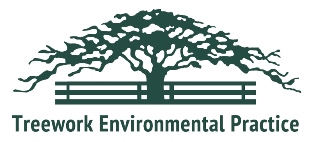First published in the AA magazine – Re-launching the Treework Seminar Series
It’s been a while but it’s back with a boom! The Treework Seminar Series is returning with a characteristically challenging and timely event.
Treework’s seminar will explore the potential of the linear forest as green lungs, ecosystem, aesthetic heritage and economic asset.
This seminar, to be held at Kew Gardens on 25 November, explores the potential of the linear forest as green lungs, ecosystem, aesthetic heritage and economic asset and aims to create an integrated vision to inform regional, national and trans-national policies.
Neville Fay, Treework Seminars founder, says, ‘We are proud to have contributed to the greatly improved standard of learning over recent years. People have asked when the next seminar will be, saying they’ve missed our stimulating approach and “thought leadership” on contemporary issues around trees and the environment. We are excited to re-launch the series, which will include some surprises, a fresh look at past themes and introduce areas new to our sector.’
Treework is working with Tony Kirkham, Head of Arboretum at Kew. ‘It’s a great pleasure to be hosting another seminar at Kew with the Treework team,’ says Tony. ‘They always cover very important, topical subjects that both Neville and I are passionate about. It’s good to be working together to deliver another exciting programme.’
The AA and Institute of Chartered Foresters (ICF) are both Associates of the initiative.
The AA’s Simon Richmond said, ‘We are delighted to be working in association with Treework and in collaboration with the ICF to promote this event, which promises to bring a fresh perspective to the understanding and management of trees as part of “the linear forest”.’
Russell Horsey, ICF’s Deputy Director and Seminar Chair, points out that ‘As our cities get more congested, tree-lined routes become increasingly important. Roadside planting is challenging, due to existing services. Older tree-lined routes face pressure from road retrofit, climate change, new pests and disease and diminishing local budgets. ICF is delighted to support Treework Seminars, which will provide UK tree professionals with new skills and perspectives to deal with these challenges.’
This seminar offers a dynamic exchange between European colleagues where new and integrated approaches to tree-lined routes are emerging. It examines big ideas from European projects and challenging proposals from French legislation.
Piotr Tyszko-Chmielowiec will discuss tree-lined routes as natural assets. His ‘Roads for Nature’ work demonstrates that ‘Tree-lined roads serve as ecological corridors to numerous organisms which are endangered due to tree removal linked to infrastructure development. Knowledge of their ecology is essential for effective conservation.’
In France, looming risk-averse legislation threatens to remove roadside trees. If implemented this could affect all EU member states. Such approaches to risk will be analysed by Prof David Ball (Centre for Decision-Making and Risk Management). He will review how ‘risk management assists decision-making in enumerating the risks and benefits of roadside trees and identifying any unintended consequences of alternative policy options’.
The seminar engages UK organisations, including Highways England, Network Rail and Forest Research, to examine UK policy and strategy, identify the nature of the current resource and consider the potential to consolidate and benchmark its expansion.
Tony Sangwine of Highways England argues, ‘The value of tree-lined roads is indisputable. We have to consider temperature moderation, drainage, habitat, screening, integration, carbon uptake, dust filtering and aesthetics.’
The seminar aims to:
- present a novel vision for tree-lined routes
- develop policies from cross-cultural, interdisciplinary communication
- seek an integrated agency approach
- map a connected vision for the landscape
- quantify the benefits for people and the environment
- consider risk perception and risk aversion and how these threaten the potential of tree-lined routes
- identify opportunities to manage risks and optimise this natural resource


